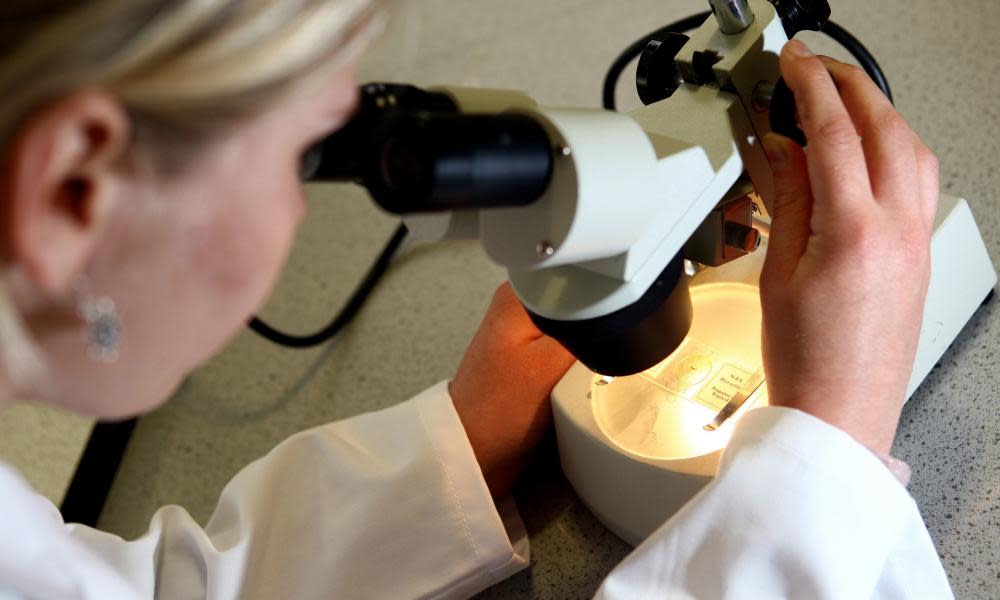Late diagnosis of breast cancer rises as NHS struggles in Covid crisis

Soaring numbers of women are being diagnosed with advanced breast cancer, undermining their chances of survival, because of Covid’s disruption of NHS care, a charity has warned.
The number of women being diagnosed with the disease at stage 4 is as much as 48% higher in some months than expected, with the pandemic to blame, says Macmillan Cancer Support.
At the same time, fewer women are being confirmed as having breast cancer at stage 1, when their chances of responding well to treatment and living longer are much higher.
For example, in April 128 women were diagnosed at stage 4 – 28 (42%) more than were expected, based on pre-pandemic trends, Macmillan said. But in the same month 942 were diagnosed at stage 1, which was 164 (15%) fewer than expected.
Macmillan estimates that there is now a backlog of 47,300 people across the UK who have not yet been diagnosed with some form of cancer, as a direct result of Covid. They include people who could not access care in the usual way because many NHS services were scaled back, and also those who were too scared to seek help or did not want to add to the pressure the health service was already under. None have had a confirmed diagnosis of cancer, though some may be undergoing tests or screening.
“The full impact of the pandemic on later diagnosis will not be understood for some time. But these figures reinforce our worst fears that delays and disruption caused by the pandemic are leading to more and more people being diagnosed later,” said Steven McIntosh, an executive director at Macmillan.
“Anyone diagnosed at a later stage is facing the agony of fewer options and worse prognosis. On top of this, they are entering into a system that does not have capacity to guarantee them timely treatment and care, which is of the upmost importance,” he added.
The charity wants ministers to lay out detailed plans to relieve the “alarming pressures on cancer services” when they publish their “elective recovery plan” next week. It will detail how NHS England will tackle the record 5.8m-strong queue of patients awaiting care.
A Macmillan analysis found types of cancer that saw the biggest falls in diagnosis in England between March 2020 and July this year included prostate cancer (down 23.1%), multiple myeloma (13.8%), melanoma (13.2%) and breast cancer (11.6%).
Daisy Cooper, the Liberal Democrats’ deputy leader and health spokesperson, said that people “will be alarmed by these figures that show record numbers of people are waiting too long for cancer treatment, leaving them at risk of more intensive treatment and a lower chance of survival.
“It is particularly worrying that prostate cancer, leukaemia and breast cancer are seeing the most missed diagnoses.”
A Department of Health and Social Care spokesperson said: “Cancer diagnosis and treatment is an absolute priority and nearly half a million people were checked for cancer in August and September this year – some of the highest numbers ever.
“We remain committed to delivering our long-term plan for tackling cancer and have backed the NHS with record investment, including £2bn this year and £8bn over the next three years to deliver an extra 9m checks, scans and operations for patients.
“Most cancer services are back to or above pre-pandemic levels and the latest NHS figures show a reduction in the number of patients waiting for a diagnostic scan for the first time this year, meaning more people are now getting the checks they need.”

 Yahoo News
Yahoo News 
